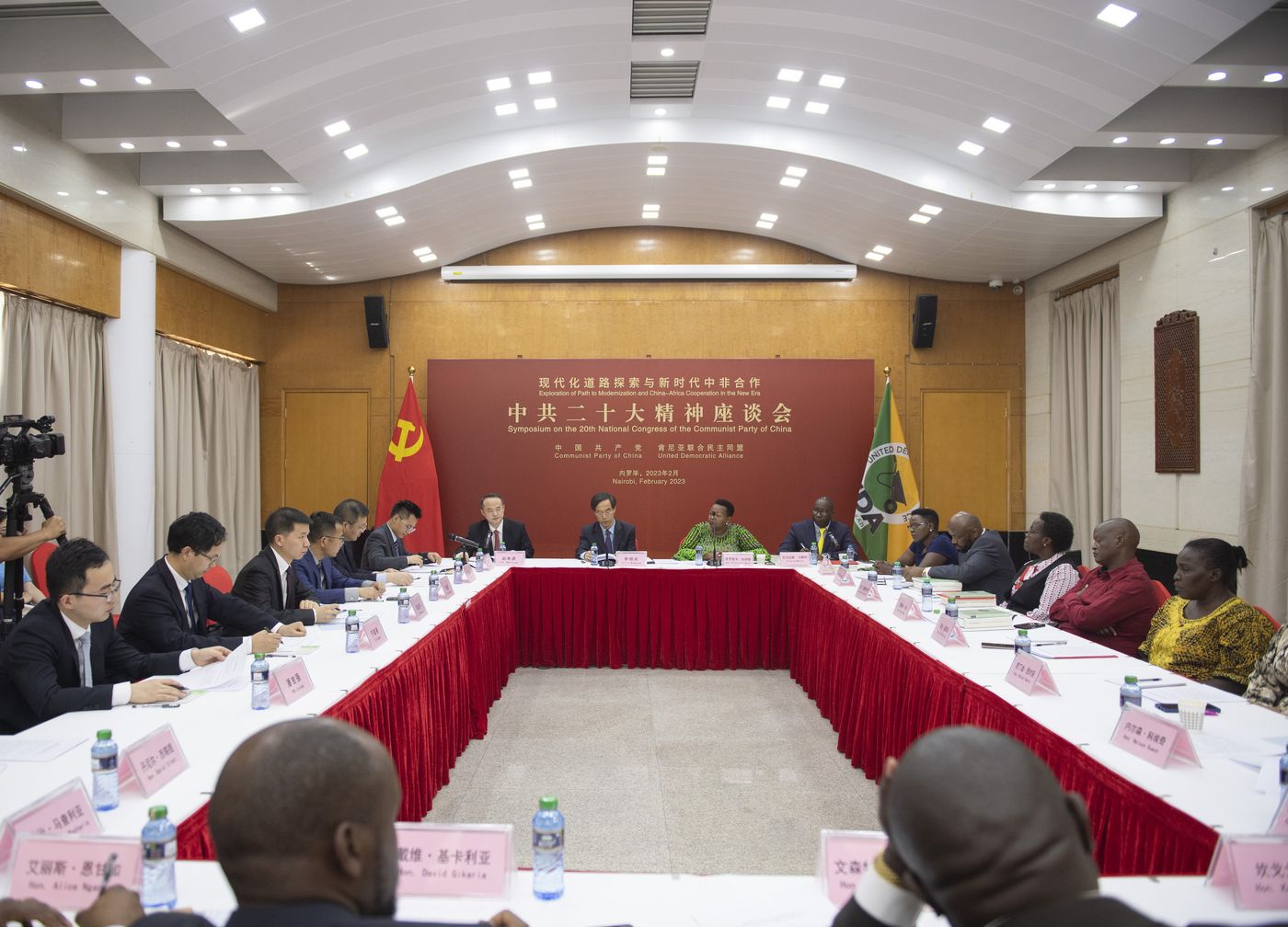
A symposium on the 20th National Congress of the Communist Party of China (CPC) is held in Nairobi, Kenya, Feb. 23, 2023.
© picture alliance / Xinhua News Agency | Li Yahui
Pragmatic, Strategic and Wide-Reaching: The CCP’s Party Diplomacy in Africa
Megatrends Policy Brief 29, 28.10.2024, 11 Seitendoi:10.18449/2024MTA-PB29
This policy brief analyses recent patterns and motives of China’s party diplomacy in Africa. It finds that the International Department of the Chinese Communist Party (CCP-ID) maintains close ties with the main ruling parties in some countries in the South and East of the continent as well as a broad range of parties in countries in North Africa.

A symposium on the 20th National Congress of the Communist Party of China (CPC) is held in Nairobi, Kenya, Feb. 23, 2023.
© picture alliance / Xinhua News Agency | Li Yahui
The FOCAC Beijing Action Plan (2025–2027) outlines concrete targets for China–Africa relations. What are the latest trends shaping this partnership, and how might they impact Europe’s cooperation with Africa?
This policy brief delves into China's strategic media engagement across Africa, revealing a dynamic interplay of state and private efforts aimed at reshaping narratives and boosting China's influence. It emphasises the pivotal role of economic and regulatory landscapes, suggesting the necessity of fostering African media independence to safeguard against authoritarian tendencies.
doi:10.18449/2024MTA-PB26
China is reorganising the spatial order in the East African Community through influencing key stakeholders. By heavily investing in regional connectivity projects via the BRI, Beijing promotes an alternative idea of development – one that is favourable to a Chinese-centric order in the region.
doi:10.18449/2023MTA-PB12
African governments and the AU have supported the development of the continent’s Information and Communication Technology (ICT) sector. China, too, has increasingly invested in that sector. This Policy Brief argues that while Beijing meets Africa’s need for the development, helps bridge the telecom gap and contributes to connectivity, there are risks surrounding China’s engagement.
doi:10.18449/2022MTA-PB07